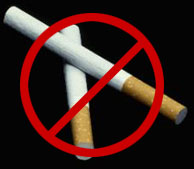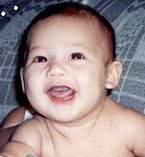|
Infant Feeding
From Birth to One Year
 What is nature's first fast food?
Mother's milk, of course. But, you can either breast or bottle
feed your baby. This is an important decision for you to make
and feel good about. Milk is the only food a baby needs for at
least four to six months. Breastfeeding is best for the baby's
physical and emotional development. Mother's milk is clean, wholesome
and provides natural immunity What is nature's first fast food?
Mother's milk, of course. But, you can either breast or bottle
feed your baby. This is an important decision for you to make
and feel good about. Milk is the only food a baby needs for at
least four to six months. Breastfeeding is best for the baby's
physical and emotional development. Mother's milk is clean, wholesome
and provides natural immunity
which protects the baby against illnesses. The protection against
illnesses cannot be found in any kind of formula. Some other
formulas are made from soy-based products. Anytime you use formula,
you increase the potential for allergy.
Mother's milk is always ready to serve and made just
for babies - a true fast food.
Breastfeeding
Breastfeeding is more convenient than bottle feeding. There
is no preparation or storage involved. You don't have to worry
about taking bottles with you or keeping them cold! It costs
more to bottle feed a baby than to breastfeed.
Mothers who breastfeed must eat a good diet and more food
than when they were pregnant. However, the cost of the extra
food needed is much less than the cost of formula. The WIC program
gives food assistance to nursing mothers.
What you eat while you nurse your baby is very important.
You'll need foods normally required by your own body plus extra
food to make milk for your baby. Eating a balanced diet after
the baby comes is just as important as when you were pregnant.
A variety of foods is needed for good health. These foods
supply the basic nutrients needed while breastfeeding your baby.
Don't cut out foods to try to lose weight quickly. Wait until
after weaning your baby to start a weight loss diet.
- Milk, Cheese and Yogurt - four to five servings.
- Vegetables - three to five servings.
- Fruits - two to four servings.
- Meats, Poultry, Fish, Dried Beans, Nuts and Eggs - two to
three servings.
- Breads, Cereals, Rice, and Pasta - six to eleven servings.
- Fats, Oils and Sweets - Use sparingly.
Breastfeeding
Tips
Drink plenty of liquids, especially water, juice and milk.
Ask the doctor if you need to take vitamin/mineral supplements.
If your baby gets gas or colic from certain foods you eat,
such as cabbage, broccoli, cauliflower, sweet potatoes, garlic
and onions, try to avoid these until the baby is a few months
older.
 Most drugs, medicines, alcohol
and caffeine will pass into your breast milk. Talk to your doctor
about taking medicines while breastfeeding. Alcohol can keep
your milk from coming in. If you drink coffee, tea and soft drinks
containing caffeine, your milk may be low in iron, and the baby
could become anemic. Too much caffeine will also keep your baby
awake. Smoking may keep you from making enough milk. Babies that
breathe smoke will have health problems. Most drugs, medicines, alcohol
and caffeine will pass into your breast milk. Talk to your doctor
about taking medicines while breastfeeding. Alcohol can keep
your milk from coming in. If you drink coffee, tea and soft drinks
containing caffeine, your milk may be low in iron, and the baby
could become anemic. Too much caffeine will also keep your baby
awake. Smoking may keep you from making enough milk. Babies that
breathe smoke will have health problems.
Nursing Your
Baby
Learning to breastfeed your baby will take some practice.
If you have questions, ask your nurse for help. Wash your hands
with soap and warm water before you handle the baby or your breasts.
Nurse your baby when he or she is hungry.
Nurse often. The more you nurse, the more milk you make. Nurse
from each breast. At the next feeding, start with the breast
that was not used last. If you return to work or school, you
can still breastfeed mornings, evenings and weekends.
How to Tell if Your Baby is Getting Enough Milk
- 1. Baby nurses at least six times every 24 hours.
- 2. Baby swallows while nursing.
- 3. Breasts feel softer after nursing.
- 4. Baby wets six or more diapers every 24 hours.
Bottle Feeding
Your Baby
Cleanliness is very important, particularly washing hands
thoroughly with hot soapy water after changing diapers and before
feeding the baby. Bottles, nipples, water and equipment used
for preparing formula must be boiled. Boiling kills germs that
can make babies very sick.
Breastfeeding is best, but babies who are bottle fed will
grow and develop normally. Infant formulas have been developed
that are similar to mother's milk. Most are made from cow's milk
and have vitamins and minerals added to meet babies' needs.
Always use a prepared formula when bottle feeding a baby.
Evaporated milk mixed with water and sugar does not provide all
the nutrients a baby needs to grow. The doctor will recommend
a suitable formula for the baby and give instructions for preparing
and feeding it. Babies who are allergic to formulas made from
cow's milk can usually take special formulas made from soy protein.
It is important always to use a formula with iron. use of soy-based
formulas have increased to minimize allergic response to cow's
milk, but there has been an increase in allergic response to
soy-based formulas. Breast milk contains human protein while
cow's milk and soy-based formulas contain protein from other
species. Animal and plant proteins are considered foreign by
the body and increase the risk of the development of allergies.
Hold your baby when bottle feeding. This gives the baby a
feeling of love and security and is important for the baby's
emotional development.
Preparing
the Bottles
Wash bottles and nipples in hot soapy water. Rinse well with
clean water and squeeze water through nipple holes. Bottles and
nipples should be sterilized until the baby is several months
old. To sterilize, place bottles in a deep pan, cover with water
and boil for 10 minutes before you measure the formula into the
bottle. Measure correct amount of cool tap water you have boiled
5 minutes to mix with powdered or concentrated liquid formula.
If making bottles first thing in the morning, let cool tap water
run a few minutes before using, to reduce lead concentration.
Measure exact amounts as directed on the label. A formula
that is too strong or too weak can be harmful to your baby. Store
bottles and unused formula in refrigerator. When ready to feed,
warm the bottle of formula to body temperature in a pan of hot
water. Do not warm the bottle in the microwave. Hot spots in
the milk can burn the baby's mouth.
Feed your baby when he or she is hungry, usually every two
to four hours at first. Babies usually take one to four ounces
at a feeding. Hold your baby closely in your arms when you give
the bottle. Keep the bottle tilted so the nipple is always filled
with milk.
Don't prop the bottle in bed and leave your baby. Talk or
hum softly while you feed the baby. Throw away any formula your
baby doesn't finish. Don't refeed from the same bottle until
it's been washed and sterilized.
You may offer the baby only boiled, cooled water between feedings.
Babies are too young for soft drinks.
Infant Feeding
Guide
The following is a general guide to introducing solid foods
to your baby's diet. Follow your doctor's advice about adding
solid foods.
- Birth to three months: Breast milk or formula only
- Four to six months: Start infant cereals
- Five months: Introduce vegetables and juices
- Six months: Introduce fruits
- Seven to eight months: Introduce plain meats
- Nine to 12 months: Begin introducing some table foods
When feeding solid foods, use a spoon instead of an infant
feeder. Infant feeders give babies too much food, causing them
to gain weight too fast.
Introduce vegetables before fruits so that the baby doesn't
refuse vegetables in favor of sweet-tasting fruit.
If juices are too strong for the baby's stomach and cause
diarrhea, dilute them with water until the baby is older. Avoid
putting babies to bed with a juice or formula bottle. This promotes
tooth decay.
When giving baby meat, offer plain, baby food meats. Don't
give meat mixtures until the baby is older. Avoid baby food vienna
sausages because of the danger of choking.
When table foods are introduced, make sure they are chopped
into small pieces that won't get stuck in baby's throat. Avoid
larger round foods, such as grapes, hot dogs, popcorn and other
items that can easily block the baby's windpipe.
Don't offer cow's milk, eggs and orange juice until the baby
is one year old. Offer honey after one year of age.
Summary
 Many factors work together to
ensure that a baby is born healthy. Some of these include
prenatal care, pregnancy diet, pregnancy weight gain and avoidance
of drugs, alcohol and tobacco. Many factors work together to
ensure that a baby is born healthy. Some of these include
prenatal care, pregnancy diet, pregnancy weight gain and avoidance
of drugs, alcohol and tobacco.
Web Sites
to Visit
www.babycenter.com
This site contains lots of good information. You could
spend hours here. Be sure to click on Tools & Calculators
and take some of the short quizzes offered on nutrition and one
of the other topics such as finance.
   [ LESSONS || SITE
MAP || LOCAL AGENTS || RESOURCES || PEOPLE ]
[ LESSONS || SITE
MAP || LOCAL AGENTS || RESOURCES || PEOPLE ]
 Issued in furtherance of Cooperative Extension
work, Acts of Congress of May 8 and June 30, 1914, in cooperation
with the United States Department of Agriculture. The Louisiana
Cooperative Extension Service provides equal opportunities in
programs and employment. Information and Graphics on this site
are copyright protected by LSU Agricultural Center's Louisiana Cooperative Extension Services.
For more information
on the EFNEP program, contact EFNEPMail@agcenter.lsu.edu. Issued in furtherance of Cooperative Extension
work, Acts of Congress of May 8 and June 30, 1914, in cooperation
with the United States Department of Agriculture. The Louisiana
Cooperative Extension Service provides equal opportunities in
programs and employment. Information and Graphics on this site
are copyright protected by LSU Agricultural Center's Louisiana Cooperative Extension Services.
For more information
on the EFNEP program, contact EFNEPMail@agcenter.lsu.edu.
|